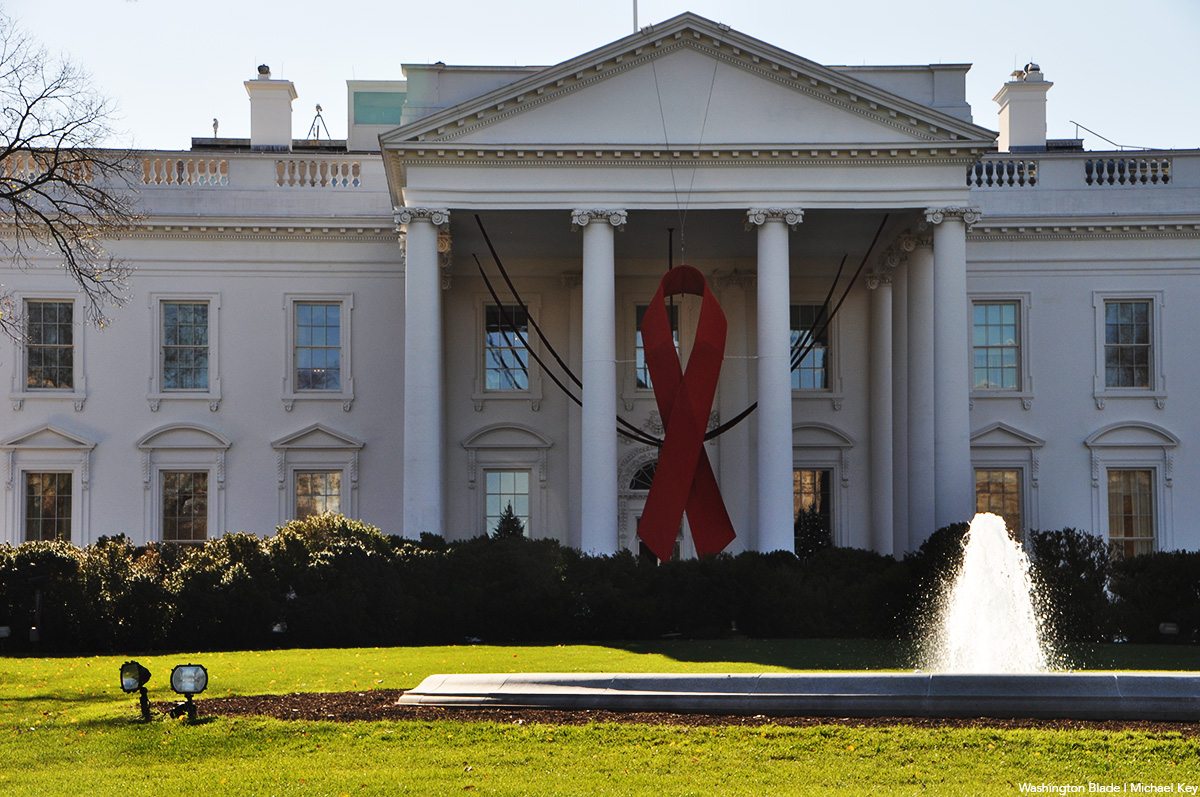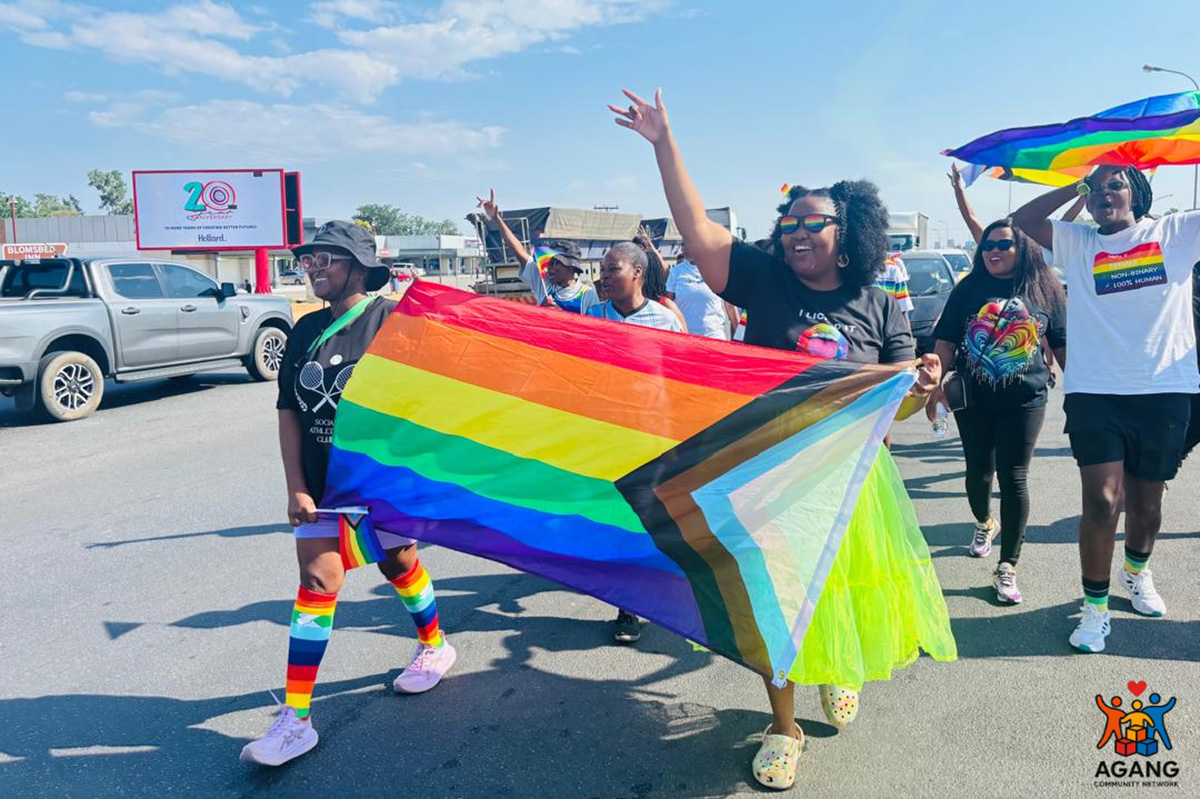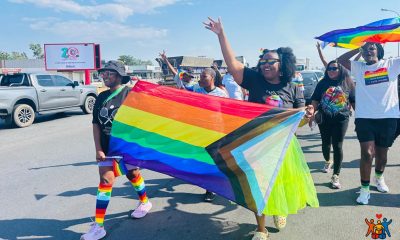Africa
American Evangelical churches masquerade as connoisseurs of African family values
Anti-LGBTQ Family Watch International, partners held conference in Nairobi last month

On Friday, May 16, 2025, Family Watch International and its partners gathered in Nairobi, Kenya, for a week-long conference themed “the Pan-African Conference on Family Values.” Family Watch International is a U.S. Christian conservative organization led by the infamous Sharon Slater. This anti-choice and anti-LGBTQ+ organization lobbies in the United Nations and countries around the world to push their anti-rights and anti-gender agenda.
This wasn’t the first conference convened on East African soil; one such was held in Uganda, from May 9-11, 2025, where Family Watch International was also a part. East Africa seems to be the hub for conservative U.S. evangelists, and one wonders why. The conference is a series of conferences focusing on what they call traditional African family values. Again, one wonders what gives an American organization the authority to speak to Africans about African Family values. After the May gathering in Nairobi, the delegates released a press statement introducing and claiming to be adopting what they labelled “The Nairobi Declaration on Family Values.”
Funded misinformation
This article was thus born to review and address, particularly, the “African family” ideas purported in the declaration. The first inquiry is, who is funding the conference? This conference is heavily funded and guided by the ultraconservative far-right evangelical movements from America and Europe. The African hosts, the Kenya Christian Professionals Forum and the Kenyan Ministry of Labor and Social Protection and actors are merely tokens in this scheme aimed at taking over Africa by erasing its actual values and redefining them from a Western and Eurocentric religious lens. The colonial missionaries historically employed this very familiar move. Another blatant untruth in their declaration is the claim that they represent governments, civil society, academia, religious bodies, and “allied international partners.” There has been no evidence to prove this claim, except for the participants who are known conservatives, infamous for their hate and anti-rights rhetoric from countries such as Uganda, Kenya, and South Africa. This piece of misinformation and disinformation is one of the strategies they employ to make it seem like most, if not all, African governments and masses approve of their unscientific absurdity.
African Family values owned by foreign entities
According to the declaration, their engagements aim to “Promoting and Protecting Family Values in Challenging Times,” advocate for and protect the “natural family.” It is rather peculiar that American and European organizations would lead a conversation about African family values. These are modern imperialists; they intend to cement their Western-centric idea of a family. Their family structure comprises a mother, a father, and children, while the African family is beyond that. Although nuclear family units do exist within African society, it is the more nuanced family structures consisting of “children, parents, grandparents, uncles, aunts, brothers, and sisters who may have their own children and other immediate relatives” that dominate the African family traditions. Often in rural areas, children are communally raised by their grandmothers, aunts, and siblings, as the parents go to the cities for economic opportunities and serve more as financial support for their young. It is therefore naïve for these modern imperialists to falsely claim a singular and rigid definition of family, especially as it concerns African people. Failure to acknowledge the diversities and complexities that exist within African family structures is both delusional and a clear indication of how there is nothing Pan-African about the conference itself.
Nothing Pan-African about it
Furthermore, how does a Pan-African family conference discuss African family values without African traditional leaders, elders, and spiritual leaders? Their exclusion of these figures demonstrates that they uphold the colonial and missionary legacy. It remains the view of the majority of Africans that those in traditional roles are the true custodians of the African culture, language, traditions, customs, and values, and these individuals clearly misalign with these modern imperialists’ agenda and mandate, thus illegitimizing claims of Pan-Africanism and protecting African family and values. The cognitive dissonance is evident in African actors who adopt those imported religious beliefs and regard them as superior to true African spirituality and culture, making these individuals modern imperialists.
Misleading the people
The intentional misuse of the term “Pan-African” not only misleads but can also entice those who believe what the term has historically meant, while in actual fact, the ideals they are spreading are far from Pan-Africanism. Meanwhile, African human rights organizations and those who can legitimately claim Pan-Africanism are concerned about colonial laws and the reform and eradication of colonial legacies. The modern imperialists, on the other hand, are reinforcing the colonial legacy by using confusing and dividing language aimed at causing moral panic among African communities.
Erasure
Activists in Kenya who have been following and monitoring the work of Family Watch International in Africa have argued that their agenda poses a grave threat to erasing Africa’s rich diversity of families. What the conference deems un-African are the same characteristics that the colonial missionaries historically labelled undesirable when they indoctrinated African societies in Christianity and its values, when Africans were made to believe that their own spiritualities are demonic.
The term “values” becomes redundant when it is solely tied to Christianity and disregards true African realities. They are causing confusion among African societies through the use of desirable and triggering language such as “Pan-Africa” and “African values.” When people are divided and busy fighting each other, important issues will fall through the cracks, go unnoticed, and there will be a lack of accountability. These modern imperialists use tactics to distract the African nation with these ideas that historically have never been a problem within African societies; meanwhile, the looting of the African land continues, and so does the exploitation of its minerals and resources. This article is part of the Southern Africa Litigation Center’s campaign around addressing hate speech, misinformation and disinformation. #StopTheHate #TruthMatters
Daniel Digashu is a consultant at the Southern Africa Litigation Center.
Egypt
Iran, Egypt object to playing in Seattle World Cup ‘Pride Match’
Game to take place on June 26

Iran and Egypt have objected to playing in a “Pride Match” that will take place in Seattle during the 2026 World Cup.
The Egyptian Football Association on Tuesday said it told FIFA Secretary General Mattias Grafström in a letter that “it categorically rejects holding any activities related to supporting (homosexuality) during the match between the Egyptian national team and Iran, scheduled to be held in Seattle, USA, on June 26, 2026, in the third round of the group stage of the 2026 World Cup.” Football Federation Islamic Republic of Iran President Mehdi Taj told ISNA, a semi-official Iranian news agency that both his country and Egypt “protested this issue.”
The 2026 World Cup will take place in the U.S., Canada, and Mexico. The draw took place at the Kennedy Center on Dec. 5.
Iran is among the handful of countries in which consensual same-sex sexual relations remain punishable by death.
The State Department’s 2023 human rights report notes that while Egyptian law “did not explicitly criminalize consensual same-sex sexual activity, authorities regularly arrested and prosecuted LGBTQI+ persons on charges including ‘debauchery,’ prostitution, and ‘violating family values.’” Egyptian authorities “also reportedly prosecuted LGBTQI+ individuals for ‘misuse of social media.’”
“This resulted in de facto criminalization of same-sex conduct and identity,” notes the report.
The 2024 human rights report the State Department released earlier this year did not include LGBTQ-specific references.
Soccer has ‘unique power to unite people across borders, cultures, and beliefs’
The June 26 match between Iran and Egypt coincides with Seattle Pride. The Washington Post reported the Seattle FIFA World Cup 2026 Local Organizing Committee decided to hold the “Pride Match” before last week’s draw.
“As the Local Organizing Committee, SeattleFWC26’s role is to prepare our city to host the matches and manage the city experience outside of Seattle Stadium,” said SeattleFWC26 Vice President of Communications Hana Tadesse in a statement the committee sent to the Washington Blade on Wednesday. “SeattleFWC26 is moving forward as planned with our community programming outside the stadium during Pride weekend and throughout the tournament, partnering with LGBTQ+ leaders, artists, and business owners to elevate existing Pride celebrations across Washington.”
“Football has a unique power to unite people across borders, cultures, and beliefs,” added Tadeese. “The Pacific Northwest is home to one of the nation’s largest Iranian-American communities, a thriving Egyptian diaspora, and rich communities representing all nations we’re hosting in Seattle. We’re committed to ensuring all residents and visitors experience the warmth, respect, and dignity that defines our region.”
The 2034 World Cup will take place in Saudi Arabia.
Consensual same-sex sexual relations remain punishable by death in the country. The 2022 World Cup took place in neighboring Qatar, despite concerns over the country’s anti-LGBTQ rights record.
Eswatini
PEPFAR delivers first doses of groundbreaking HIV prevention drug to two African countries
Lenacapavir now available in Eswatini and Zambia.

The State Department on Tuesday announced PEPFAR has delivered the first doses of a groundbreaking HIV prevention drug to two African countries.
The lenacapavir doses arrived in Eswatini and Zambia.
The State Department in September unveiled an initiative with Gilead Sciences to bring lenacapavir “to market in high-burden HIV countries.”
Lenacapavir users inject the drug twice a year.
The State Department in its September announcement noted everyone who participated in Gilead’s clinical trials remained HIV negative. It also said lenacapavir “has the potential to be particularly helpful for pregnant and breastfeeding mothers, as it safely protects them during and after pregnancy to prevent mother-to-child transmission.”
“In our new America First Global Health Strategy, the Department of State is establishing a first-of-its-kind innovation fund to support American-led research, market-shaping, and other dynamic advancements in global health,” said PEPFAR on Tuesday in a press release.
“The arrivals of the first doses of lenacapavir in Eswatini and Zambia mark an important milestone in HIV prevention and reflect our commitment to supporting communities with the greatest need,” added Gilead CEO Daniel O’Day. “For the first time, a new HIV medicine is reaching communities in sub-Saharan Africa in the same year as its U.S. approval.”
The September announcement came against the backdrop of widespread criticism over the Trump-Vance administration’s reported plans to not fully fund PEPFAR and to cut domestic HIV/AIDS funding. The Washington Blade has previously reported PEPFAR-funded programs in Kenya and other African countries have been forced to curtail services or even close because of U.S. funding cuts.
Botswana
The first courageous annual Palapye Pride in Botswana
Celebration was a beginning rooted in courage, community, and love.

“When the sun rose on 1 Nov., 2025, Pride morning in Palapye, the open space where the march was scheduled to begin was empty. I stood there trying to look calm, but inside, my chest felt tight. I was worried that no one would come. It was the first-ever Pride in Palapye, a semi-urban village where cultural norms, religious beliefs, and tradition are deeply woven into everyday life.
I kept asking myself if we were being naive. Maybe people weren’t ready. Perhaps fear was going to win. For the first 30 minutes, it was me, a couple of religious leaders and a handful of parents. That was it. The silence was loud, and every second felt like it stretched into hours. I expected to see the queer community showing up in numbers, draped in color and excitement. Instead, only the wind was moving.
But slowly, gently, just like courage often arrives, people started to show up with a rainbow flag appearing from behind a tree and a hesitant wave from someone standing at a distance.
That’s when I understood that people weren’t late, just that they were afraid. And their fear made sense. Showing up openly in a small community like Palapye is a radical act. It disrupts silence. It challenges norms. It forces visibility. Visibility is powerful, but it is never easy. We marched with courage, pulling from the deepest parts of ourselves. We marched with laughter that cracked through the tension. We marched not because it was easy, but because it was necessary,” narrates activist Seipone Boitshwarelo from AGANG Community Network, which focuses on families and friends of LGBTIQ+ people in Botswana. She is also a BW PRIDE Awards nominee for the Healing and Justice Award, a category which acknowledges contributions to wellness, mental health, and healing for the LGBTIQ+ community across Botswana.
Queer Pride is Botswana Pride!
Pride is both a celebration and a political statement. It came about as a response to systemic oppression, particularly the criminalization and marginalization of LGBTIQ+ people globally, including in Botswana at some point. It is part of the recognition, equality, and assertion of human rights. It also reminds us that liberation and equality are not automatically universal, and continued activism is necessary. A reminder of the famous saying by Fannie Lou Hamer, “Nobody is free until everybody’s free.”
The 2023 Constitutional Review process made one thing evident, which is that Botswana still struggles to acknowledge the existence of LGBTIQ+ people as full citizens. Instead of creating a democratic space for every voice, the process sidelined and erased an entire community. In Bradley Fortuin’s analysis of the Constitutional review and its final report, he highlighted how this erasure directly contradicts past court decisions that explicitly affirmed the right of LGBTIQ+ people to participate fully and openly in civic life. When the state chooses to ignore court orders and ignore communities, it becomes clear that visibility must be reclaimed through alternative means. This is why AGANG Community Network embarked on Palapye Pride. It is a radical insistence on belonging, rooted in community and strengthened through intersectionality with families, friends, and allies who refuse to let our stories be erased.
Motho ke motho ka batho!
One of the most strategic decisions made by the AGANG Community Network was to engage parents, religious leaders, and local community members, recognizing their value in inclusion and support. Thus, their presence in the march was not symbolic, but it was intentional.
Funding for human rights and LGBTIQ+ advocacy has been negatively impacted since January 2025, and current funding is highly competitive, uneven and scarce, especially for grassroots organizations in Botswana. The Palapye Pride event was not funded, but community members still showed up and donated water, a sound system, and someone even printed materials. This event happened because individuals believed in its value and essence. It was a reminder that activism is not always measured in budgets but in willingness and that “motho ke motho ka batho!” (“A person is a person because of other people!”).
Freedom of association for all
In March 2016, in the the Attorney General of Botswana v. Rammoge and 19 Others case, also known as the LEGABIBO registration case, the Botswana Court of Appeal stated that “members of the gay, lesbian, and transgender community, although no doubt a small minority, and unacceptable to some on religious or other grounds, form part of the rich diversity of any nation and are fully entitled in Botswana, as in any other progressive state, to the constitutional protection of their dignity.” Freedom of association, assembly, and expression is a foundation for civic and democratic participation, as it allows all citizens to organize around shared interests, raise their collective voice, and influence societal and cultural change, as well as legislative reform.
The Botswana courts, shortly after in 2021, declared that criminalizing same-sex sexual relations is unconstitutional because they violated rights to privacy, liberty, dignity, equality, and nondiscrimination. Despite these legal wins, social stigma, cultural, and religious opposition continue to affect the daily lived experience of LGBTIQ+ people in Botswana.
The continuation of a declaration
AGANG Community Network is committed to continuing this work and creating safe and supportive spaces for LGBTIQ+ people, their families, friend, and allies. Pride is not just a day of fun. It is a movement, a declaration of queer existence and recognition of allyship. It is healing and reconciliation while amplifying queer joy.
Seipone Boitshwarelo is a feminist, activist, social justice healer, and founder of AGANG Community Network. Bradley Fortuin is a social justice activist and a consultant at the Southern Africa Litigation Center.
-

 Sponsored5 days ago
Sponsored5 days agoSafer Ways to Pay for Online Performances and Queer Events
-

 District of Columbia4 days ago
District of Columbia4 days agoTwo pioneering gay journalists to speak at Thursday event
-

 Colombia4 days ago
Colombia4 days agoBlade travels to Colombia after U.S. forces seize Maduro in Venezuela
-

 a&e features4 days ago
a&e features4 days agoQueer highlights of the 2026 Critics Choice Awards: Aunt Gladys, that ‘Heated Rivalry’ shoutout and more




















